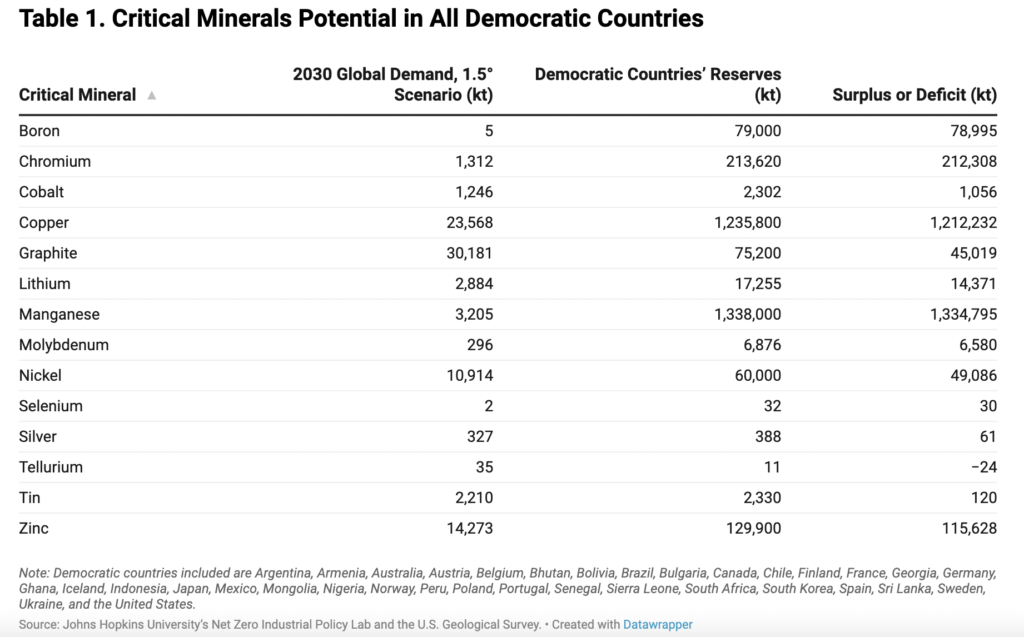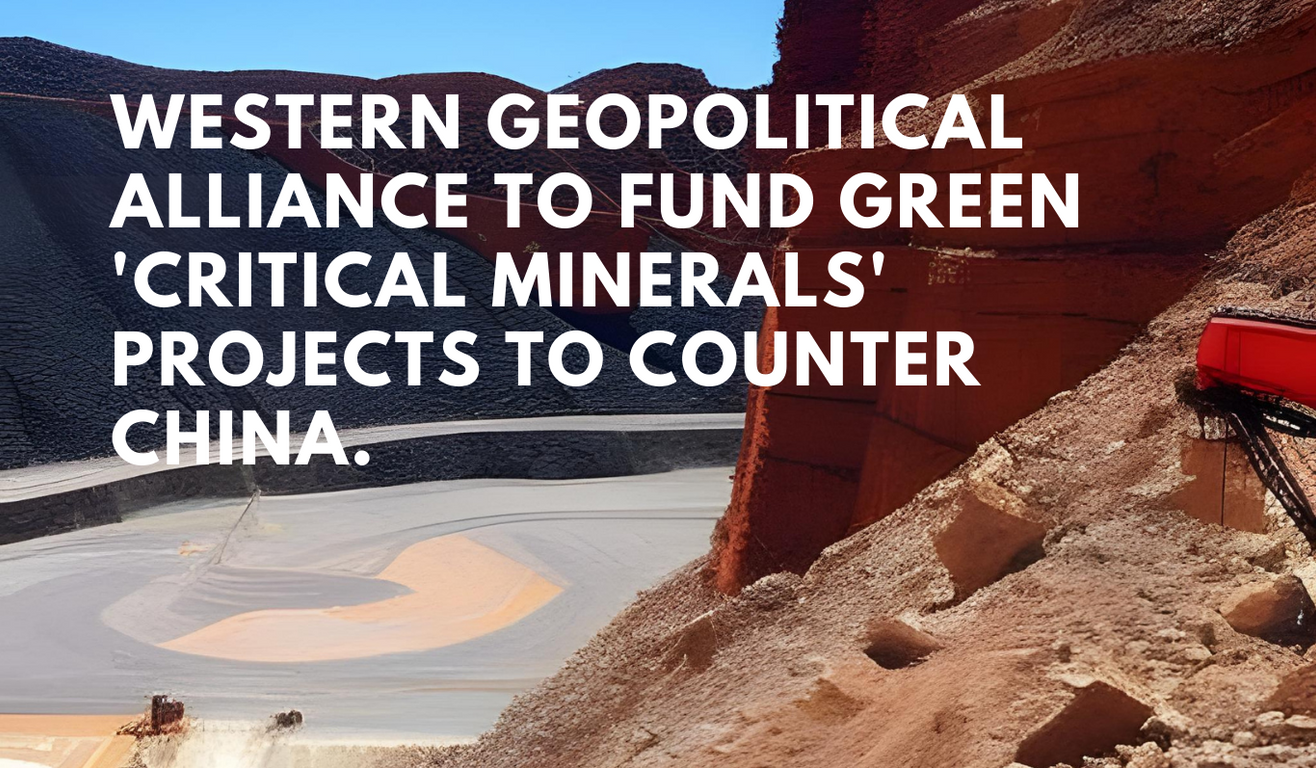A consortium of nations, worried about critical minerals for the green industrial revolution, will hand-pick major mining projects across the world to directly fund.
The Minerals Security Partership, is designed to ensure “critical minerals are being “produced, processed, and recycled in a manner that supports the ability of countries to realise the full economic development benefit of their geological endowments.”
Australia, Canada, Finland, France, Germany, Japan, Korea, Sweden, Italy, the United Kingdom, the United States, and the European Union are all members of the partnership.
The partnership is now narrowing down a number of mining projects it will hand-pick for funding across the world, the Financial Times reported this week.
The Financial Times reported there are 15 projects set for secure direct investment, culled from a list of 200:
The newspaper quoted Jose Fernandez, US under-secretary for economic growth, energy and the environment.
“It is our very strong hope that, by the end of the year, we will have a couple of big projects that will be announced,” he said. The shortlist spans mining, processing and recycling of critical minerals, and the projects are geographically diverse. They include some in Africa, “a couple” in Europe, a few in Latin America and others in Asia, FT reported.
According to the Carnegie Endowment for International Peace reporting recently, the critical minerals the alliance wants to secure includes copper used in electrical wiring, the nickel and lithium used in many batteries, and the zinc used in protective coatings for solar panels and wind turbines.
Other critical minerals held in control of ‘democratic countries’ are listed in the below table by Carnegie.

How Mineral Security Partnership Works
The Mineral Security Partnership is a collaborative effort between countries to ensure the secure and sustainable supply of minerals. The partnership works by bringing together governments, industry, and civil society to identify key minerals that are critical to economic and national security. These minerals are then prioritized for responsible sourcing and sustainable production.
One of the main ways the partnership operates is through information sharing. Countries share data on mineral reserves, production, and trade flows to identify potential vulnerabilities in supply chains. This information helps stakeholders make informed decisions about where to source their minerals from.
Another important aspect of the partnership is capacity building. Developing countries often lack the technical expertise and infrastructure necessary for responsible mineral extraction. The partnership provides assistance in these areas to ensure that mining is done in a way that is environmentally sound and socially responsible.
Overall, the Mineral Security Partnership represents a critical step towards ensuring that global mineral resources are
managed in a way that benefits everyone while minimizing environmental harm and social disruption.
Benefits Of Mineral Security Partnership
The benefits of mineral security partnership are numerous and far-reaching. Firstly, it ensures that countries have access to the minerals needed for their economic growth and development. This is particularly important for developing countries that may lack the resources to extract minerals themselves.
Secondly, mineral security partnership helps to promote stability in global markets by reducing the risk of supply disruptions or price spikes caused by conflicts or natural disasters.
Thirdly, it encourages responsible mining practices and environmental sustainability by setting standards for companies operating in partner countries.
Fourthly, it can lead to increased collaboration on research and development of new technologies that use minerals, such as renewable energy systems.
Finally, it fosters diplomatic relationships between partner countries and promotes international cooperation towards a common goal of securing access to essential minerals for all nations.
The Future Of Mineral Security Partnership
In conclusion, the mineral security partnership is an essential initiative that has the potential to shape the future of
sustainable development.
The partnership aims to ensure that minerals are extracted in a socially and environmentally responsible way while also promoting transparency and good governance.
The success of this partnership depends on the commitment of all stakeholders, including governments, mining companies, civil society organizations, and local communities.
Going forward, it will be crucial to address some of the challenges faced by the mineral security partnership. These include issues related to financing, capacity building, and coordination among stakeholders. Nevertheless, with proper investment and support from all actors involved, there is no doubt that this initiative can have a significant impact on ensuring that mineral resources are used in a sustainable manner.
Overall, the mineral security partnership provides an opportunity for countries to work together towards achieving common goals while also promoting sustainable development practices.






